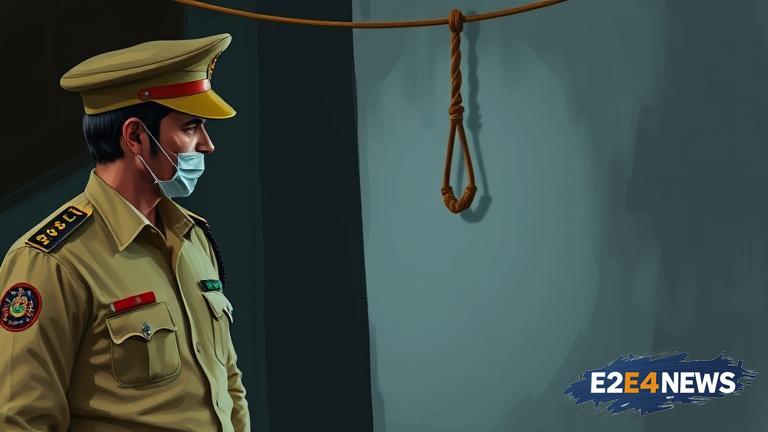In a shocking incident that highlights the persistent menace of dowry demands in Indian society, a young woman lost her life in Ballia, Uttar Pradesh. The victim, whose identity has not been disclosed, was found hanging at her home, leading the police to launch an investigation into the circumstances surrounding her death. The probe revealed that the woman’s husband had been making persistent demands for dowry, which the family had been unable to fulfill. This led to a significant amount of tension and stress in the marriage, ultimately culminating in the tragic loss of life. The police were quick to respond to the incident, arresting the husband and registering a case against him under relevant sections of the law. The incident has sparked widespread outrage and condemnation, with many calling for stricter laws and greater awareness to combat the scourge of dowry demands. Despite numerous initiatives and campaigns aimed at eradicating this practice, dowry-related deaths continue to occur with alarming frequency. The Uttar Pradesh government has faced criticism for its handling of such cases, with many arguing that more needs to be done to protect vulnerable women. The National Crime Records Bureau (NCRB) reports that dowry deaths account for a significant proportion of violent crimes against women in India. The data suggests that the problem is particularly pronounced in certain states, including Uttar Pradesh, Bihar, and Madhya Pradesh. In recent years, there has been a growing recognition of the need for a more comprehensive approach to addressing dowry demands, including education and awareness campaigns, as well as stricter enforcement of existing laws. The incident in Ballia serves as a stark reminder of the need for urgent action to prevent such tragedies from occurring in the future. The police have stated that they will be conducting a thorough investigation into the incident, and will be taking all necessary steps to ensure that justice is served. The victim’s family has expressed their shock and grief at the loss of their loved one, and have called for the harshest possible punishment for those responsible. The incident has also sparked a wider debate about the role of societal attitudes and cultural norms in perpetuating the practice of dowry demands. Many have argued that a fundamental shift in mindset is required, with a greater emphasis on the value and dignity of women. The government has announced plans to launch a new initiative aimed at combating dowry demands, which will include a range of measures such as awareness campaigns and counseling services. However, many have expressed skepticism about the effectiveness of such initiatives, arguing that more concrete action is needed to address the root causes of the problem. As the investigation into the incident continues, there are growing calls for greater accountability and transparency in the handling of dowry-related cases. The incident serves as a tragic reminder of the need for a more sustained and concerted effort to eradicate the practice of dowry demands, and to ensure that those responsible are brought to justice. The case has also highlighted the importance of supporting victims of dowry demands, and providing them with access to counseling and other forms of assistance. In conclusion, the incident in Ballia is a stark reminder of the need for urgent action to prevent dowry-related deaths, and to address the underlying societal attitudes and cultural norms that perpetuate this practice. It is only through a sustained and collective effort that we can hope to eradicate this scourge and create a safer, more equitable society for all.
